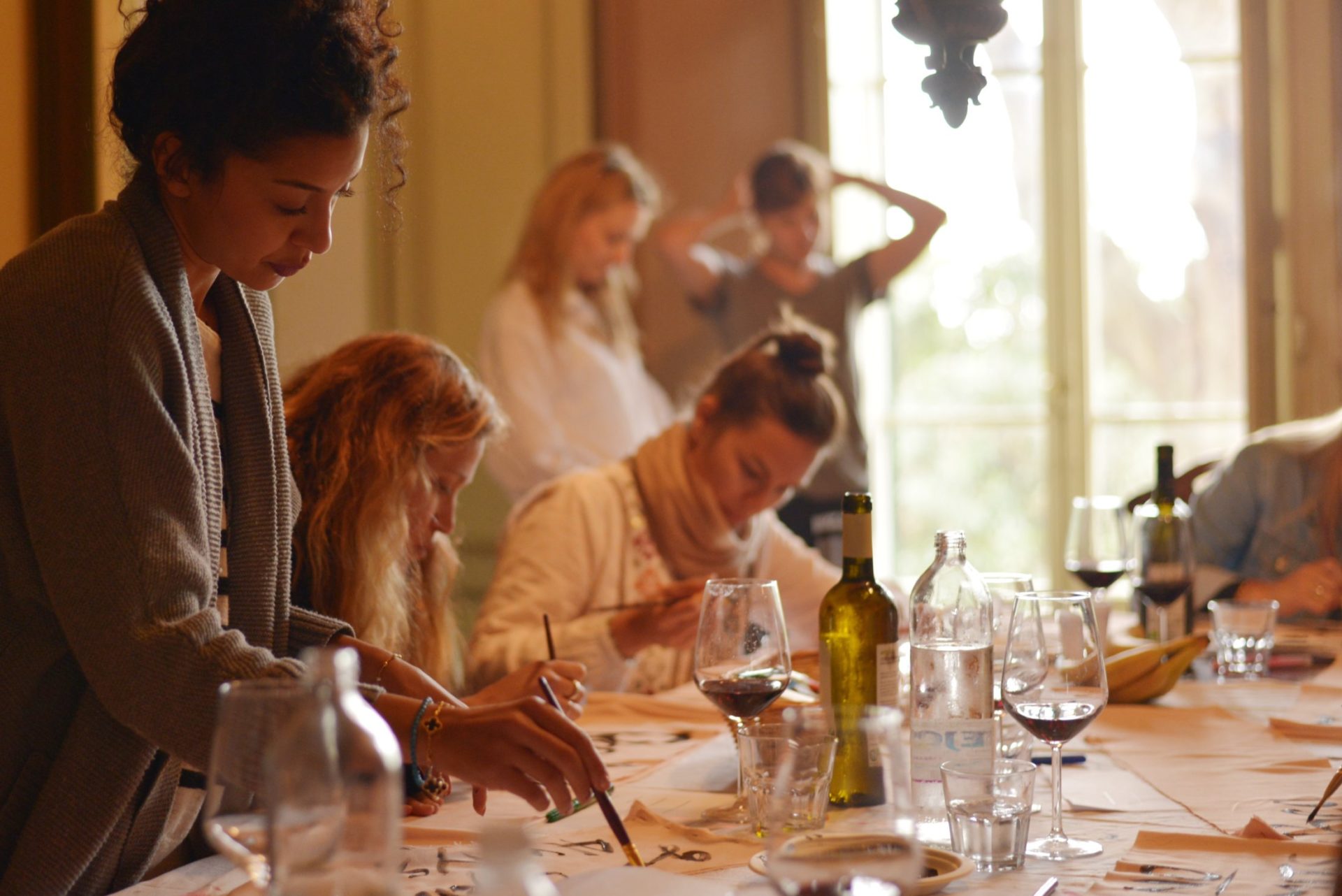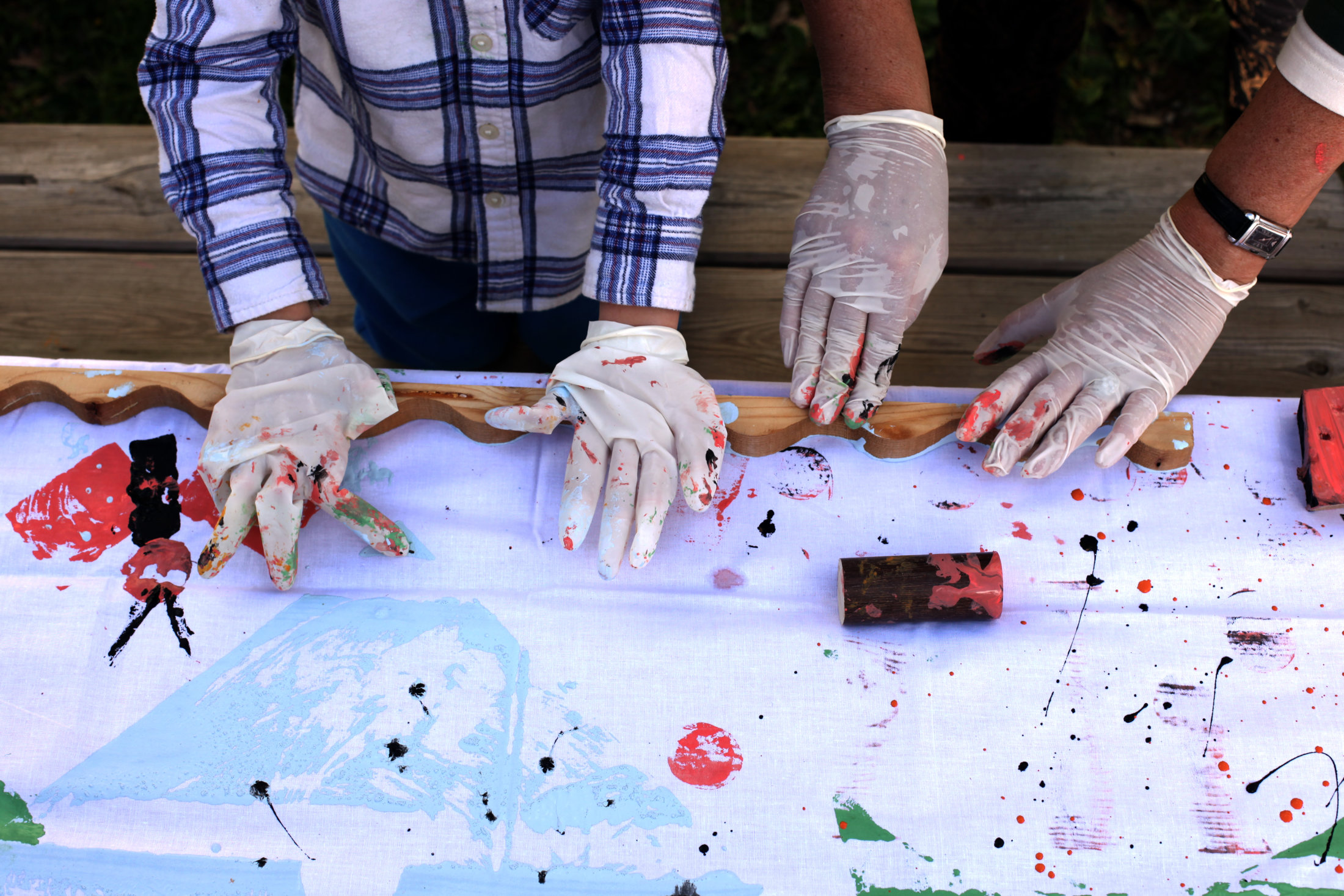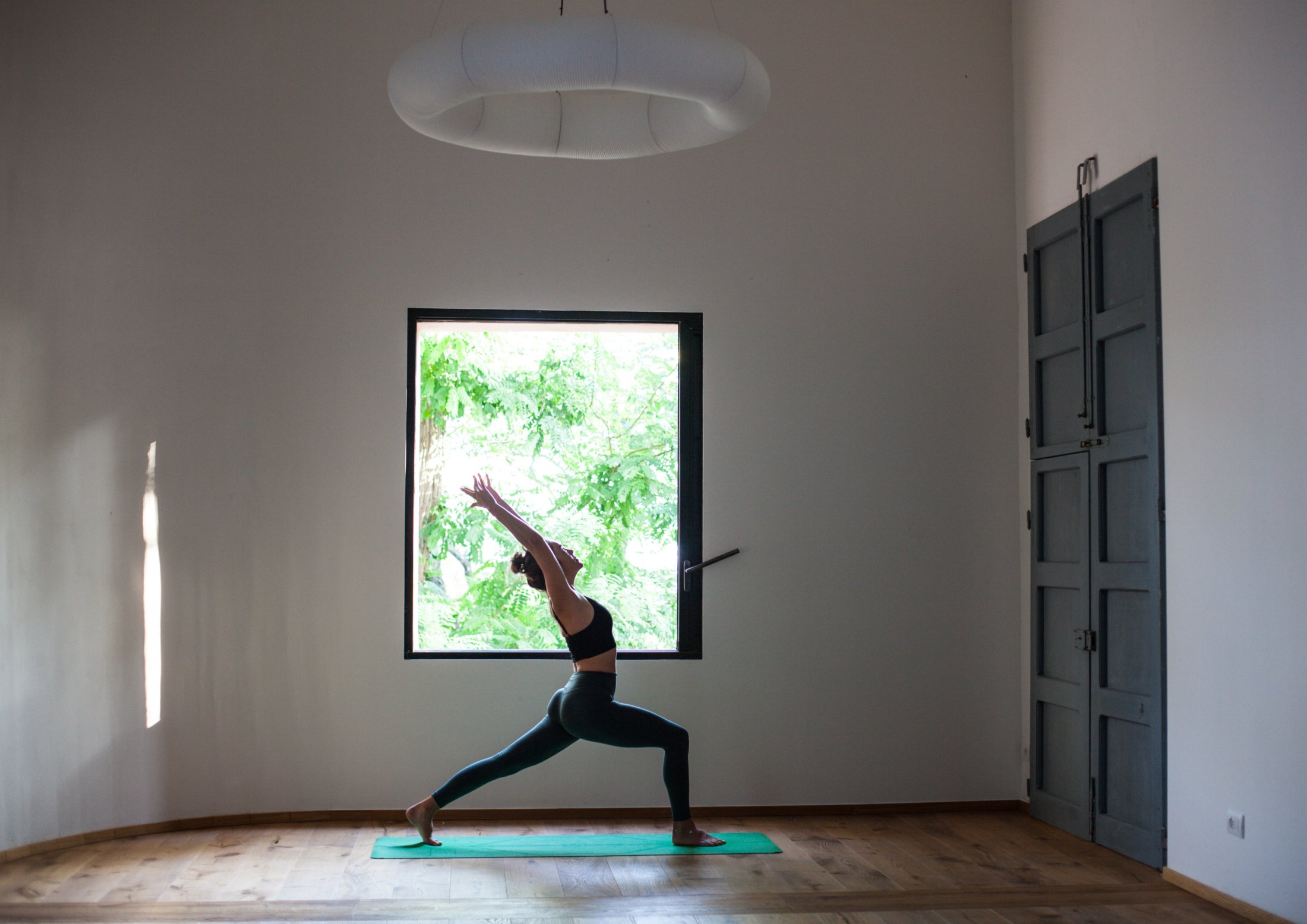EVERYDAY HABITS THAT MAKE YOU MORE CREATIVE
This article has an overview of contemporary understandings on creativity, and draws on insights from some of the most famous creative writers and artists on their daily routines. Based on this, discover the 5 most important daily habits that will assist you in boosting your creativity: Prioritise sleep; procrastination; walks in nature; stream of consciousness writing; yoga and meditation. You can combine all these rituals in a yoga retreat hosted at Villa Lena with Nina Butler in summer 2021.
Are we all creative?
Almost all of us would like to be more creative. At school, most of us are taught that only certain people are creative. The conventional wisdom is that you either have it naturally, like a talent you are born with, or you don’t.
However, if you read any advice and wisdom from artists, writers and accomplished creative thinkers, you will discover that it is not ‘talent’ that makes you creative, but routine.
Mason Currey’s blog-turned-book Daily Rituals described the workday life of great minds such as Picasso, Franz Kafka and Voltaire.
One overarching theme is that there is no ‘secret sauce’ to the creative life. Artists’ routines are as varied as the people who consume their work, but all artists have routines.
For example the Japanese novelist, Maruki Murakami, has a famously rigid routine that begins at 4am. He dives straight into his writing routine without break or diversion for 8hours. He then throws on his running togs and heads out for a 10km run in and around Tokyo, regardless of the season. Murakami points out that “repetition itself becomes the important thing; it’s a form of mesmerism. I mesmerize myself to reach a deeper state of mind.”
Picasso, on the other hand, was known to paint late into the night, favouring the mysterious atmosphere of the midnight hours, and sleep until noon. In Luke Jerod Kummer’s brilliant novel (based on extensive research), The Blue Period, he describes how Picasso became dependent on the routine of painting at night for a number of practical reasons – and then how the loneliness, the introspection of this routine greatly influenced and enhanced his work.
Creativity as part of your lifestyle
So how can we practically draw on these insights from famous creative minds? Most importantly, all of them indicate how they approach the cultivation of their routines in a strategic way. They consciously choose to discover what works for them, and what is sustainable. Once they find something that feels right, they implement this routine over and over and over again. This point is crucial, because people often imagine that creatives randomly and serendipitously float from one inspiration to the next. The reality is that they work at it. Within the boundaries of the routine, of course, the work produced can take any number of inspired twists and turns, but they show up, the same time, in the same way, to let inspiration flow.
Habits and rituals
Drawing from a comprehensive study into the minute details of daily routines of famous creative people, and recent scientific studies on the brain and creativity, here are 5 habits that cultivate creativity. All 5 are accessible, and rather simple. But if prioritised and consciously made part of a lifestyle that supports creativity, they can be powerful. This is the approach many artists take while completing their residency at Villa Lena, and all five habits are well suited to the charming rural Tuscan setting at Villa Lena.
Prioritise sleep
Some of us are night owls, and some of us are morning larks. Some of us need a 10hours per night, some of us feel fine on 6. The bottom line is, get to know what works for you and then prioritise it. Quality sleep is necessary for creative work. If you work well late at night, and need to sleep in to get the full 8hours, then shuffle your schedule around to ensure that happens. If you are most energised and focused first thing in the morning, make sure you get to bed early enough. When we try to apply a sleeping routine on us that is not suited, we get poor quality sleep, and we tend to feel tired and grumpy more often.
Procrastination is good
This may come as a surprise, but procrastination is good for creativity! Allowing yourself to procrastinate in small doses and not feeling guilty about it, allows the imagination to roam freely. When you delay a task you are subconsciously processing the way in which you will approach the task, and your mind is free to think ‘out of the box’ because you are not ‘working on’ the work, you are digesting it. Procrastination is also a habit that trains the mind to play at work, rather than doggedly bulldoze through it, which is just the point! When work is play, it’s creative.
Walk in nature, alone
So many of the great philosophers, artists, and writers in history have been massive fans of a good long walk in nature!
Jean-Jacque Rousseau has famously written that, “I can only meditate when I am walking. When I stop, I cease to think; my mind works with my legs”.
Walking forces you to slow down the rate of thinking to the cadence of your steps. It enhances the flow of oxygen to the brain, and is calming for the nervous system. It also ushers the mind into a state of keen, quiet observation. This is a wonderful combination of factors for creativity to flow. Taking a stroll in the wild hills of Tuscany around VIlla Lena is a must!
Stream of consciousness writing
This is a technique famously used by Jack Kerouac, but it originated with the works of psychologist William James (brother of the writer Henry James). The purpose is to emulate the passage of thought through your mind without any inhibitions. The sentences become longer, sporadic and the subject structure is not organised. You simply set a time – say 10minutes – and then write continuously, without lifting your pen, recording every single thing that comes to mind. Mostly, the output is not very impressive, or worthy in itself, but the exercise is wonderful for freeing up the mind and kick-starting the ‘flow’ of expression. Some writers (and even visual artists) use this for a set time every day before they begin working on their creative projects directly.
Meditation and mindful movement
Any given day can be a flux of mental stimulations, thinking, planning, fretting, and imagining. But what happens when you observe the mind and breath? What happens when those thoughts start to slow, when you find your centre in a calm moment of awareness that is uncluttered and pure?
Meditation is increasingly a subject of study in western science, and Harvard Business Review has published a report on the positive impact meditation has on your mental health – and how it boosts creativity.
Meditation improves focus and mental resilience, but it also trains the brain into ever more detailed and subtle awareness. For some of us, meditation happens not in stillness, but in movement. There are many movement practices that emphasise mindfulness and meditation in motion – such a yoga, thai chi and kung fu.
Embark on a creative holiday and implement these 5 habits for creativity!
Join a yoga retreat at Villa Lena: Tuscany Yoga Retreat, 16 – 21 April 2021 & 17 – 24 July 2021
Book now: host@villalena.it; hello@ninabutler.net
Check out Villa Lena’s calendar of creative workshops and events, available for you anytime you choose to stay with us!





